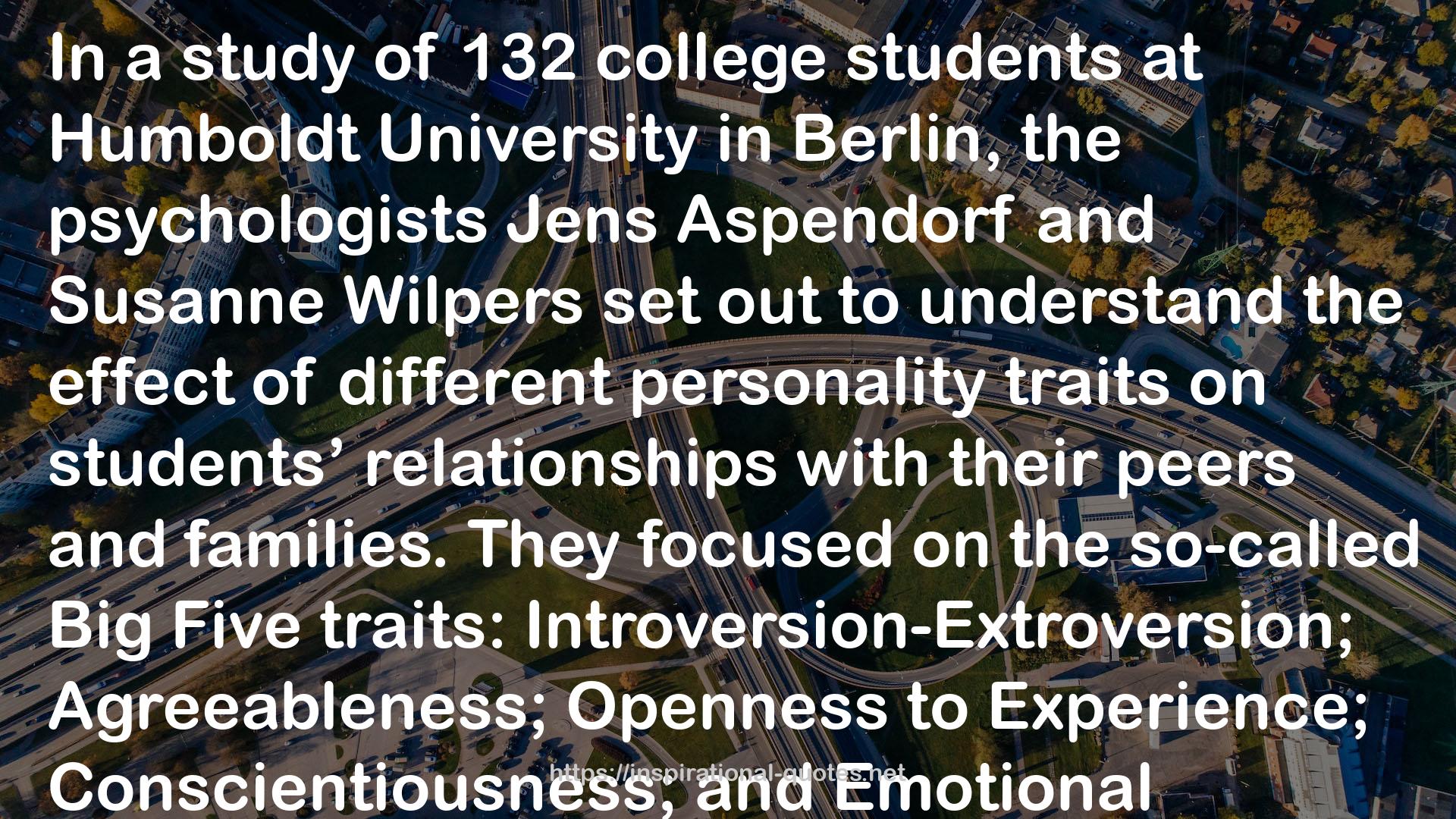" In a study of 132 college
students at Humboldt University in Berlin,
the psychologists Jens Aspendorf
and Susanne Wilpers set out to understand
the effect of different personality
traits on students’ relationships with
their peers and families. They focused
on the so-called Big Five traits:
Introversion-Extroversion; Agreeableness;
Openness to Experience; Conscientiousness;
and Emotional Stability.
(Many personality psychologists believe
that human personality can be boiled
down to these five characteristics.)
Aspendorf and Wilpers predicted that
the extroverted students would have an
easier time striking up new friendships
than the introverts, and this was indeed
the case. But if the introverts were truly
antisocial and extroverts pro-social,
then you’d suppose that the students
with the most harmonious relationships
would also be highest in extroversion.
And this was not the case at all. Instead,
the students whose relationships
were freest of conflict had high scores
for agreeableness. Agreeable people are
warm, supportive, and loving; personality
psychologists have found that if you
sit them down in front of a computer
screen of words, they focus longer than
others do on words like caring, console,
and help, and a shorter time on words
like abduct, assault, and harass. Introverts
and extroverts are equally likely
to be agreeable; there is no correlation
between extroversion and agreeableness.
This explains why some extroverts
love the stimulation of socializing but
don’t get along particularly well with
those closest to them. "
Image for Quotes
